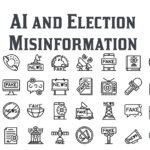
“Amazon is ethically obligated to disclose this information. The authors and publishers should be disclosing it already, but if they don’t, then Amazon needs to mandate it—along with every retailer and distributor,” Jane Friedman says. “By not doing so, as an industry we’re breeding distrust and confusion. The author and the book will begin to lose the considerable authority they’ve enjoyed until now.”
“We’ve been advocating for legislation that requires AI-generated material to be flagged as such by the platforms or the publishers, across the board,” Authors Guild CEO Mary Rasenberger says.
There’s an obvious incentive for Amazon to do this. “They want happy customers,” Rasenberger says. “And when somebody buys a book they think is a human-written work, and they get something that is AI-generated and not very good, they’re not happy.”
So why doesn’t the company use AI-detection tools? Why wait on authors disclosing if they used AI? When asked directly by WIRED if proactive AI flagging was under consideration, the company declined to answer. Instead, spokesperson Ashley Vanicek provided a written statement about the company’s updated guidelines and volume limits for self-published authors. “Amazon is constantly evaluating emerging technologies and is committed to providing the best possible shopping, reading, and publishing experience for authors and customers,” Vanicek added.
This doesn’t mean that Amazon is out on this kind of technology, of course—only that it’s currently staying silent on any deliberations that might be happening behind the scenes. There are a number of reasons why the company might approach AI detection cautiously. For starters, there is skepticism about how accurate the results from these tools currently are.
Last March, researchers at the University of Maryland published a paper faulting AI detectors for inaccuracy. “These detectors are not reliable in practical scenarios,” they wrote. This July, researchers at Stanford published a paper highlighting how detectors show bias against authors who aren’t native English writers.
Some detectors have shut down after deciding they weren’t good enough. OpenAI retired its own AI classification feature after it was criticized for abysmal accuracy.
Problems with false positives have led some universities to discontinue use of different versions of these tools on student papers. “We do not believe that AI detection software is an effective tool that should be used,” Vanderbilt University’s Michael Coley wrote in August, after a failed experiment with Turnitin’s AI detection program. Michigan State, Northwestern, and the University of Texas at Austin have also abandoned the use of Turnitin’s detection software for now.
While the Authors Guild encourages AI flagging, Rasenberger says she’s anticipating that false positives will be an issue for its members. “That’s something we’ll end up hearing a lot about, I assure you,” she says.
Concerns about accuracy in the current crop of detection programs are entirely sensible—and even the most dialed-in detectors will never be flawless—but they don’t negate how welcome AI flagging would be for online book buyers, especially for people searching for nonfiction titles who expect human expertise. “I don’t think it’s controversial or unreasonable to say that readers care about who is responsible for producing the book they might purchase,” Friedman says.











